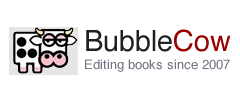In this recent article I outlined a framework that can be used to build an online presence. One of the most common questions that has emerged from this post is simply, ‘What should writers blog about?’
To be fair, this is actually an excellent question. I have spoken to many writers who have resisted starting a blog simply because they feel that their views and ideas were not interesting enough to be published. This is not the case: I am confident that any writer can produce a blog that people will find both interesting and informative.
In this article I will teach you the topics that will make good blog posts, and show you how to avoid writing blog posts that are boring to your readers.
Don’t Blog About You
The golden rule for thinking up blog post ideas is to remember that everyone is selfish. People want to read blog posts that entertain and add value to their lives. The brutal reality is that they don’t want to hear about your thoughts and everyday problems. Instead, they want to know what you know that will help them reach their goals.
This is the key.
No matter who you are, you will know stuff that will add value to your reader’s lives. Take the BubbleCow blog as an example. I am a writer with more than twenty books in print. I know lots about writing, editing and the process of getting published. I know stuff that will help you to get published. I have learned, through trial and error, the things that work, so that’s what I blog about. I don’t blog about my political views, or my kids, or provide reviews of books I have read or even postulate on the chances of Tranmere being promoted. These topics will not add value to you, the reader, and you are all I care about. This blog is for you — not me.
This means that your first step is to find the topics to blog about. These topics need to meet two criteria.
- The first is that they need to be something about which you have a level of expertise and knowledge. You don’t need to be an expert, but you do need to know more than the average reader.
- The second is that these topics need to be of interest to potential readers of your book. For example, if you have written a book about birdwatching, don’t write blog posts about collecting stamps. It will be pretty clear for most non-fiction books the kinds of topics you should be addressing. For fiction books this can be a bit more difficult. Some genres have strong followings (I am thinking genres such as dark fantasy and science fiction), whilst others, such as thrillers, are just too fragmented. In these cases you need to blog about more general topics. It could be book reviews, or books in general, or reading, or even your process of writing. The key is to be creative and try to appeal to your ideal reader.
Have a Plan
Having decided what to blog about, the next step is to come up with a strategy and ask yourself, “When will I blog?” Blogging on a regular and predictable basis will build trust. To be honest, as we are coming to understand blogging in more detail, it appears that consistency is more important then frequency. For this reason I would suggest you develop a strategy that matches your lifestyle and workload. At BubbleCow we blog twice a week. On a Monday we have a guest blog post (click here if you are interested in writing for us) and on a Wednesday we post something written internally. We also write a newsletter, which comes out every Friday. This strategy fits our workload and is something we can do without it impacting on our editing schedule. If you feel you can blog every day, then great. However, if you feel once a month is more realistic, then that’s also great. Consistency is more important than frequency.
Next Step
My suggestion is that before you start blogging you make a list of as many titles for blog posts as possible. You then put these in a list and give yourself a framework from which you can work. By deciding your blog titles in advance you will remove the pressure of thinking up a topic each week. I would also suggest you get into the habit of writing down the title for any new blog post as soon as it comes into your head. At BubbleCow we use the WordPress Editorial Calendar plugin so it’s clear to everyone what blog posts we have coming in the near future.
So to sum up, the first step is to find a topic that will add value to your reader’s lives, the second step is to come up with a blogging strategy that will work for you and the final step is to plan.

Pingback: Blog Ideas for Fiction Writers: Peanut Buying Escapades? | Diapers, Bookmarks, and Pipe Dreams
Pingback: Thoughts about blogging | malenemontmartre